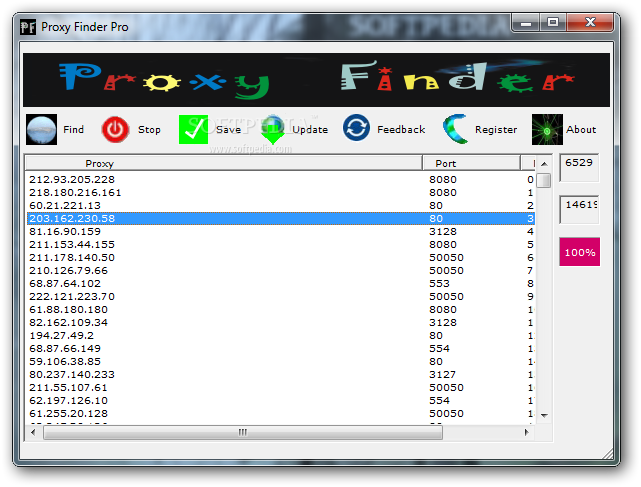- Port Query Tool Mac Find What A Port Is Being Used For Spoofing
- Port Query Tool Mac Find What A Port Is Being Used For Sharing
- Port Query Tool Mac Find What A Port Is Being Used For Spam
#Source Query
Hello, I got problem with TS3 server (amd64 3.0.7.1) under Debian. I cannot connect to the server that is running. I checked netstat and it is listening on port 9987. But still cannot connect. For every DNS query, the following information is displayed: Host Name, Port Number, Query ID, Request Type (A, AAAA, NS, MX, and so on), Request Time, Response Time, Duration, Response Code, Number of records, and the content of the returned DNS records.
The Port Query tool could be set as the capture below. If the query result shows “listening”, it means port configuration is good. We need to troubleshoot this issue further.
Command line query tool for source servers. Basically a head for goseq.Use it to get source server lists from the Valve's master servers (ora custom, ip-specified one).

PortQry is a download from Microsoft that allows you to see what ports on a remote device are open. While you can use Zenmap, PortQry is a program designed by Microsoft to find and troubleshoot connections. The ARP log translates IP to MAC, and the MAC-port log translates the MAC address to a switch port. The standard mechanism used to gather all this data is SNMP, from a central network management host.
#Installation0. You must have Go Installed (minimum 1.0)0. Make sure your GOPATH is added to your system's PATH (it isn't by default)* You can find your current GOPATH by running go env* Windows:set PATH=%PATH%;%GOPATH%* Linux/Mac:export PATH=$PATH:$GOPATH0. Run go get github.com/hfern/sourceq to compile & install the binary to your GOPATH
Update
To update Source Query, simply run go get -u github.com/hfern/sourceq
#Usage
Port Query Tool Mac Find What A Port Is Being Used For Spoofing
There are two types of queries that can be done with Source Query: Master Server querying and individual Source Server queying.
##Master Queries
A sourceq master command will querying a Source Master Server to obtain a list of servers.By default, only IPs are returned by the Master server. If only the IP field is requested(--fields 'ip') then only a single request to the master server will be dispatched. Ifother fields are requested (--fields 'ip,name') then a single, additional request will be dispatchedfor each ip returned by the master server.
You can always use sourceq master -? for a summary of the command line options.

Use the --json flag to output a JSON encoded array of the retrieved servers to StdOut instead of printing a table of servers.Diagnostic information may still be printed to StdLog.
Fields
Use a comma-delimited list of these with the --fields flag.
For text-results, column lengths may optionally be specified to pad values with by appending =X where X is a numberindicating the minimum field length for that column.

E.g. --fields 'ip=21,players,name=0' will pad the IPcolumn to 21 characters, use the default padding for the players column, and not pad the name column.
- environment: Environment OS (L inux, W in, M ac/ O s X)
- id: ID of the server.
- steamid: SteamID of the server.
- ip: IP Address of the Server
- bots: Number of Bots
- game: Game being run.
- map: Map currently active (e.g. de_dust2).
- players: Number Players
- spectatorname: Spectator Name
- spectatorport: Spectator Port
- vac: Is the server VAC protected?
- gameid: GameID that the Server is running
- mode: Mode the server is running
- name: Name of Server
- port: Port of the server.
- servertype: Hosting Type (eg dedicated)
- witnesses: # Witnesses for The Ship.
- duration: Will arrest in (The Ship)
- folder: Folder that the game is hosted from.
- keywords: Keywords, registered by the player
- maxplayers: Maximum number of players allowed
- version: Version of the server being run.
- visibility: Is a password required to join?
Regions
Use with the -r flag. E.g. -r 'USW' for United States West servers.
- SA: South America
- EU: Europe
- AS: Asia
- AU: Australia
- ME: Middle East
- USE: United States (East)
- USW: United States (West)
- AF: Africa
- OTHER: Rest of World
Known Filters
You may use other filters than the ones listed here. These are the publicly known ones.
Use as -f filtername:value
You may use multiple filters (-f filtername:value -f other:otherval).
- type: Servers running (d)edicated, (l)isten, or (p) SourceTV.
- secure: (1) Servers using anti-cheat technology (VAC, but potentially others as well).
- gamedir: Servers running the specified modification (ex. cstrike)
- map: Servers running the specified map (ex. cs_italy)
- linux: Servers running on a Linux (1) platform
- empty: Servers that are not empty (1)
- full: Servers that are not full (1)
- proxy: Servers that are spectator proxies (1)
- napp: Servers that are NOT running game ([appid])
- noplayers: Servers that are empty (1)
- white: Servers that are whitelisted (1)
- gametype: Servers with all of the given tag(s) in sv_tags (tag1,tag2,...)
- gamedata: Servers with all of the given tag(s) in their 'hidden' tags (L4D2) (tag1,tag2,...)
- gamedataor: Servers with any of the given tag(s) in their 'hidden' tags (L4D2) (tag1,tag2,...)
Filter Usage Examples
For only listen servers
For only non-empty servers
Servers running Counter Strike currently on map de_dust2
###Master Examples
General help for querying master servers
Port Query Tool Mac Find What A Port Is Being Used For Sharing
Get the first 20 servers' IP and Name in U.S. West.
Get non-empty, non-full servers.
Port Query Tool Mac Find What A Port Is Being Used For Spam
List the usable filters, regions, and fields that can be used.
Dump a JSON list of servers to the file 'servers.json'